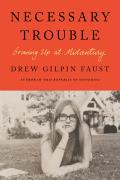One topic that arose in that interview was the recent trend in some states to ban any school history lessons that might make some students “feel discomfort, guilt, anguish, or any other form of psychological distress on account of his or her race,” to quote from Florida’s law.
One problem with such laws is that, while ostensibly opposed to racial thinking, they actually protect it. Why would a 21st-century student feel “discomfort, guilt, [or] anguish” about 19th-century slaveholders or 20th-century segregationists except by prioritizing an old idea of race over their supposedly modern ideals?
As many classroom teachers have pointed out, it’s impossible to accurately teach large swaths of modern history without discussing the concept of race and thus potentially triggering some students’ “discomfort, guilt, [or] anguish.”
One alternative—inaccurately teaching that history to avoid mentions of race—would provoke “discomfort” and “anguish” for students whose family members were oppressed by racist behavior and laws and see the state-directed lesson disregarding those experiences.
Faust offers another argument against the approach behind such laws:
It’s a betrayal of the commitment to truth and to fact. And it so undermines the ability of people in the present to understand who they are. How do we have history that’s not uncomfortable? How do we have any kind of education that doesn’t make you in some way uncomfortable? Education asks you to change.To be sure, some politicians don’t want all human beings, or even most, to be empowered.
The headmistress of my girls school many years ago said to us, “Have the courage to be disturbed, to learn about the Holocaust and see what evil can mean, to learn about slavery and think about exploitation that is empowered by an ideology of race that we haven’t entirely dismantled. Understand what people did in the past so that you can, in the present, better critique your own assumptions, your own blindnesses, and make a world that’s a better world.”
If we don’t acknowledge those realities, we are disempowered as human beings.

Great blog, great interview on NPR (oh yes great commentary by a person we will hopefully hear more from.). Thank you John for highlighting this.
ReplyDelete